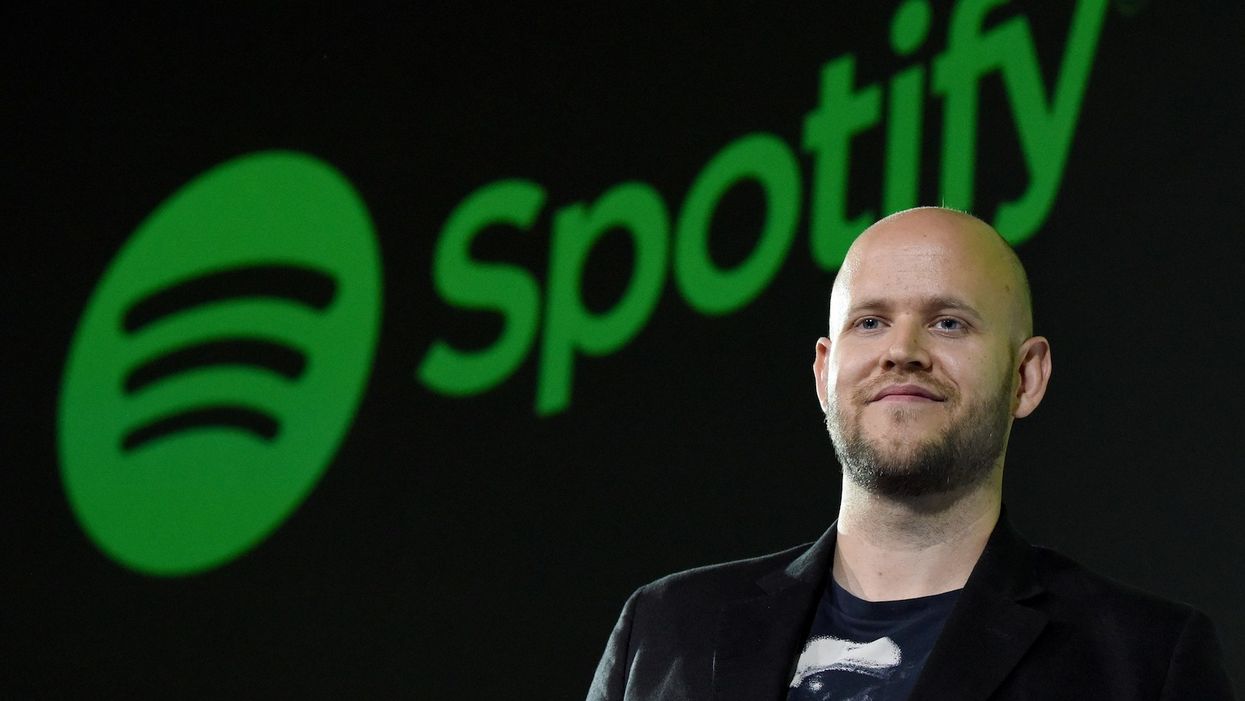
Daniel Ek, CEO of Swedish music streaming service Spotify. (TORU YAMANAKA/AFP via Getty Images)

The opposite approach to Facebook
Rather than attempt to fact-check every single political ad that runs on its platform, the music streaming service Spotify just won't run any at all, according to Reuters.
Spotify Technology SA announced Friday that, starting in early 2020, it will stop accepting any political ads leading up to the election.
"At this point in time, we do not yet have the necessary level of robustness in our processes, systems and tools to responsibly validate and review this content," a Spotify spokeswoman told Reuters in a statement. "We will reassess this decision as we continue to evolve our capabilities."
Spotify is taking a similar route as the social media company Twitter, which has decided not to run campaign advertisements rather than deal with the workload of trying to avoid spreading false information.
The new policy will cover political groups such as candidates for office, elected and appointed officials, political parties, political action committees (PACs) and SuperPACS, as well as content that advocates for or against those entities. Spotify will also not sell ads that advocate for legislative and judicial outcomes.
Facebook has been heavily criticized for its hands-off policy of allowing political ads but declining to check them for factual accuracy.
Amid fears about potential interference in the upcoming election, tech companies have been grappling with how to handle the flow of political information on their platforms responsibly.
Twitter and Google have banned microtargeting, a process through which campaigns can match up voter data with voters' online profiles and advertise specifically to them. Although Twitter doesn't allow candidate ads, it will still allow political issue advertisements.
Facebook has not yet opted to ban microtargeting, and the platform is particularly useful for that purpose due to the depth of information users reveal about themselves on the site. However, in the face of heavy criticism, CEO Mark Zuckerberg has said the company will consider some changes to its political ad policy.
Facebook's combination of a policy that clearly allows politicians to lie to users in ads, and a policy that allows those politicians' campaigns to specifically target certain voters, appears to open the site up to be abused by those who might seek to influence the election with misinformation.